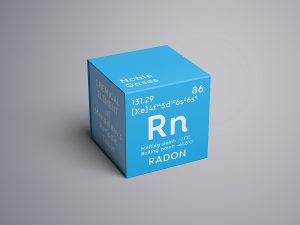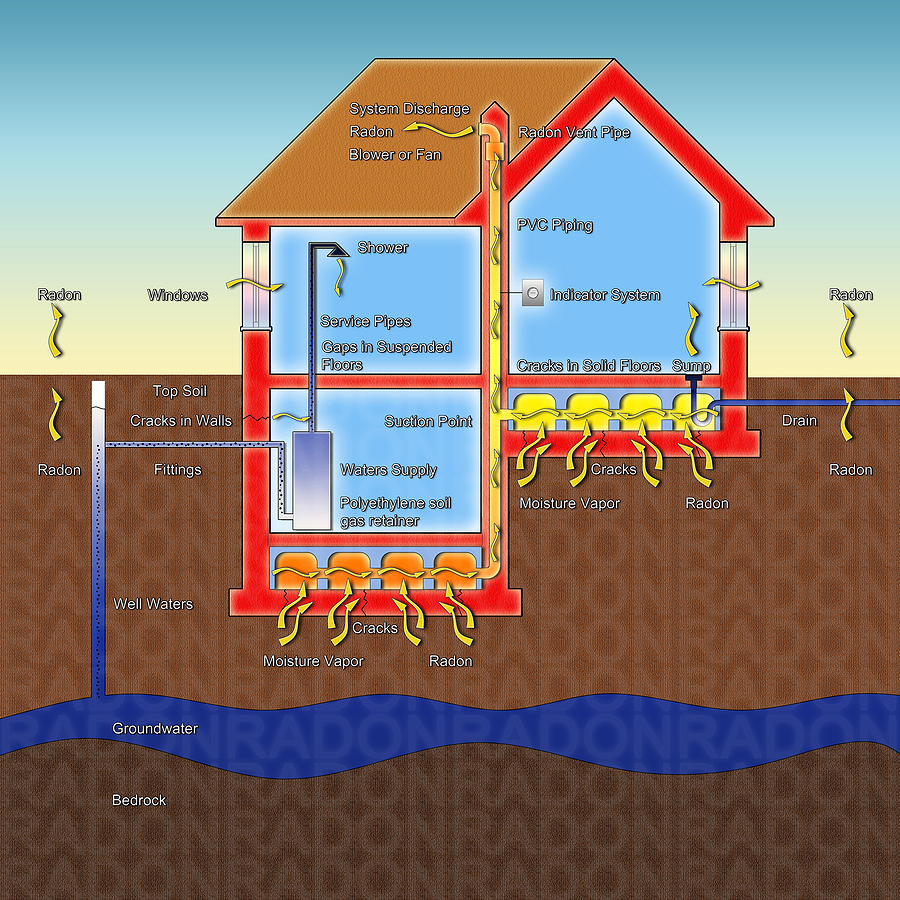Radon is a radioactive, carcinogenic gas, and one of the many naturally occurring minerals that make up different types of bedrock. It has no color, taste, or odor, even at very high levels. Radon enters our homes as gas through natural foundation materials and poured concrete foundations, and in our groundwater supplied by a drilled well. Even houses built on slabs can emit dangerous levels of radon. Homes without foundations can also have high levels of radon gases present. Houses over sand and gravel most commonly test at higher levels.
Left untreated, radon exposure over the course of time is proven to be a leading cause of lung cancer.


No level of radon is considered to be safe, but the Environmental Protection Agency and the State of Maine consider a test level over 4 pCi/L (picocuries per liter) in the air and 4,000 pCi/L in water as an average level to be dangerous. For context – living in a house where you are consistently exposed to this level is a higher radiation exposure than is permitted for nuclear power plant workers. More than 25% of the homes tested in Maine are above 4 pCi/L, and it is not uncommon to see a house test over 50 pCi/L which, with annual exposure, equates to smoking two packs of cigarettes each day. Just because your neighbor’s house tests high, or low, does not mean your house’s test levels would be similar.
Millions of homes have elevated radon levels, and are completely unaware of the danger.